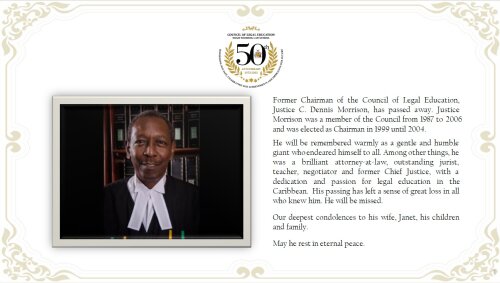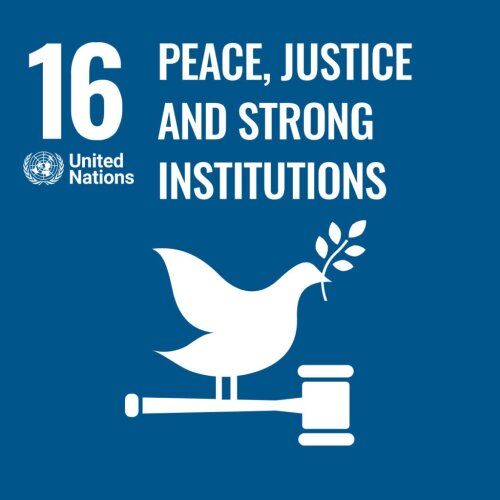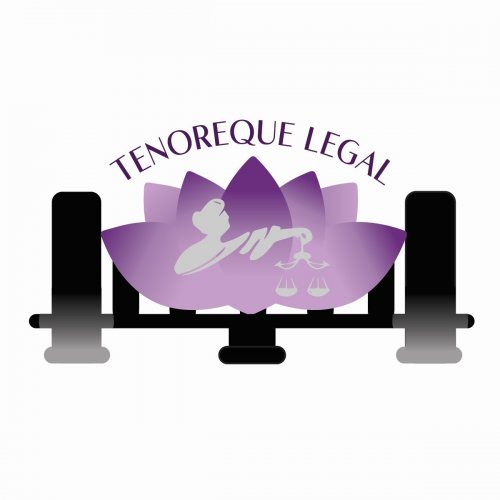Best Faith-Based Law Lawyers in Port of Spain
Share your needs with us, get contacted by law firms.
Free. Takes 2 min.
List of the best lawyers in Port of Spain, Trinidad and Tobago
About Faith-Based Law in Port of Spain, Trinidad and Tobago
Faith-Based Law in Port of Spain, Trinidad and Tobago, refers to legal matters and disputes that arise within or between religious communities and individuals. The multicultural and religiously diverse population in Trinidad and Tobago gives rise to a variety of faith-based legal considerations, spanning various religions, including Christianity, Islam, Hinduism, and others. Faith-Based Law can encompass a wide range of issues, from religious marriage contracts and discrimination to the management of religious estates and the rights of religious communities. Legal oversight in this area seeks to balance religious freedom with the rule of law within the nation’s legal framework.
Why You May Need a Lawyer
There are several situations where individuals may require legal assistance in Faith-Based Law:
- Disputes arising from religious marriages or divorces that require understanding of both civil and religious law.
- Issues related to employment discrimination based on religion.
- Conflicts involving religious property or estate management.
- Challenges surrounding religious freedom and practices, including zoning laws for places of worship.
- Negotiations or disputes related to religious community governance or leadership selection.
- Legal matters concerning the incorporation or registration of religious organizations.
Local Laws Overview
The legal framework in Trinidad and Tobago respects religious freedom but mandates that religious practices align with national laws. Key aspects relevant to Faith-Based Law include:
- Freedom of Religion: The Constitution of Trinidad and Tobago guarantees freedom of religion, allowing individuals to practice their faith freely.
- Marriage and Family Law: Civil law governs marriage, but religious communities may also adhere to their own matrimonial principles, which must align with national law.
- Employment and Anti-discrimination Laws: Laws are in place that protect against discrimination based on religion in workplaces and public accommodations.
- Property and Estate Law: Religious entities must comply with local property laws concerning ownership and administration.
- Customary Law Recognition: Some elements of customary religious law are recognized in specific contexts, such as the recognition of Islamic legal codes in marriage and divorce, provided they comply with the broader legal framework.
Frequently Asked Questions
1. What is Faith-Based Law?
Faith-Based Law encompasses the legal principles and cases that relate to religious practices, beliefs, and communities.
2. Are religious marriages recognized by local law?
Yes, religious marriages are recognized, but they must be registered in accordance with civil law to be legally binding.
3. Can religious institutions own property in Trinidad and Tobago?
Yes, they can own property, but they must comply with national property and registration laws.
4. How are disputes within religious communities resolved legally?
Such disputes can be resolved through religious arbitration, mediation, or by seeking legal recourse in civil courts.
5. What rights do individuals have regarding religious dress in workplaces?
Individuals are protected under anti-discrimination laws to express their religious identity, which includes wearing religious attire.
6. How can my religious organization get officially recognized?
Religious organizations must register with the relevant government authorities to gain legal recognition and operate formally.
7. Can customary religious laws override state laws?
No, while some customary practices are respected, they must not conflict with the national legal framework.
8. Is it mandatory for employers to provide religious accommodations?
Employers are generally required to provide reasonable accommodations for religious practices unless doing so creates undue hardship.
9. What legal recourses are available for religious discrimination?
Victims of religious discrimination can file complaints with government bodies or pursue legal action in the courts.
10. How do zoning laws affect places of worship?
Places of worship must comply with local zoning laws, which dictate how land can be used in various areas.
Additional Resources
If you require further guidance on Faith-Based Law in Port of Spain, you may contact:
- The Law Association of Trinidad and Tobago for legal referrals and advice.
- The Ministry of the Attorney General and Legal Affairs for information on legal rights and obligations.
- Religious councils and organizations specific to your faith community.
Next Steps
Should you need legal assistance in Faith-Based Law, consider the following steps:
- Identify the specific legal issue or dispute you are facing.
- Research and gather documentation relevant to your situation.
- Contact a lawyer with expertise in Faith-Based Law who can provide legal advice tailored to your needs.
- Consult with the relevant religious authorities for guidance on religious law aspects.
- Engage in mediation or arbitration if suggested as a preliminary step for resolution.
- Proceed with legal action in civil court if necessary, under the guidance of your lawyer.
Lawzana helps you find the best lawyers and law firms in Port of Spain through a curated and pre-screened list of qualified legal professionals. Our platform offers rankings and detailed profiles of attorneys and law firms, allowing you to compare based on practice areas, including Faith-Based Law, experience, and client feedback.
Each profile includes a description of the firm's areas of practice, client reviews, team members and partners, year of establishment, spoken languages, office locations, contact information, social media presence, and any published articles or resources. Most firms on our platform speak English and are experienced in both local and international legal matters.
Get a quote from top-rated law firms in Port of Spain, Trinidad and Tobago — quickly, securely, and without unnecessary hassle.
Disclaimer:
The information provided on this page is for general informational purposes only and does not constitute legal advice. While we strive to ensure the accuracy and relevance of the content, legal information may change over time, and interpretations of the law can vary. You should always consult with a qualified legal professional for advice specific to your situation.
We disclaim all liability for actions taken or not taken based on the content of this page. If you believe any information is incorrect or outdated, please contact us, and we will review and update it where appropriate.














